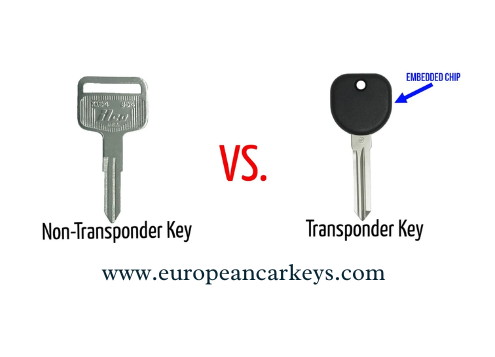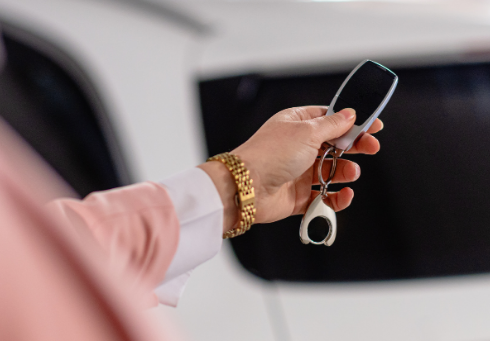Locked out of your car can be a scary and frustrating experience. Whether you accidentally locked your keys in the car or have lost your car keys completely, it can be hard to know what to do. Fortunately, with the right knowledge and preparation, dealing with a locked car doesn’t have to be so overwhelming. In this blog post, we’ll give you tips on when to call for help and when to attempt the lockout yourself, as well as how to do it safely. With these tips, you’ll be able to turn a potential panic situation into a successful pro-level lockout.
Understanding the Types of Locks on Your Car
Locked cars come with a variety of locking mechanisms, and understanding these types of locks can help you approach the situation with confidence. The most common types of locks found on cars include traditional key locks, keyless entry systems, and electronic locks.
Traditional key locks are the ones we are all familiar with. They require a physical key to unlock the car doors. Keyless entry systems, on the other hand, use a remote or key fob to unlock the car doors with the push of a button. These systems are convenient, but they can also pose their own challenges if the battery in the key fob dies.
Electronic locks are becoming increasingly popular and are found in many newer car models. These locks rely on sensors and buttons to unlock the doors. They often require a code or fingerprint recognition for access.
Understanding the type of lock on your car is important because it will determine your approach to unlocking it. For traditional key locks, you may be able to use a locksmith’s tools or a coat hanger to carefully unlock the door. Keyless entry systems may require the assistance of a professional who can reprogram the remote or provide a new key fob. With electronic locks, it’s best to consult the car’s manual or contact a dealership for guidance on how to proceed.
By understanding the types of locks on your car, you can approach a lockout situation more effectively and choose the appropriate course of action to regain access to your vehicle.
When to Call for Professional Help
When it comes to a locked car situation, sometimes it’s best to leave it to the professionals. Calling for professional help is especially recommended in certain circumstances.
One important factor to consider is your own safety. If you find yourself in a dangerous or unfamiliar area, it’s best not to take any risks. In these situations, it’s wise to call for professional help and wait in a safe location until they arrive.
Another reason to call for professional help is if you have a newer car model with electronic locks. These locks can be complex and require specialized knowledge to unlock without causing damage. Trying to unlock these types of locks on your own can potentially cause more harm than good.
Additionally, if you have lost your car keys completely, it’s time to call for professional help. A locksmith or car dealership can assist you in creating a new set of keys or reprogramming your keyless entry system.
Finally, if you have attempted to unlock your car yourself and have been unsuccessful, it’s time to reach out for professional assistance. Continued attempts to unlock the car can potentially damage the lock mechanism or even cause injury.
Remember, it’s always better to err on the side of caution when it comes to dealing with a locked car. Calling for professional help ensures that the situation is handled correctly, safely, and efficiently, giving you peace of mind during a stressful time.
How to Safely Break into Your Own Car
Have you ever found yourself locked out of your car with no spare key in sight? It’s a frustrating situation, but before you panic, there are steps you can take to safely break into your own car. Here are some tips to help you regain access to your vehicle without causing damage or injury.
First, assess the situation. Take a deep breath and think through your options. Are there any open windows or unlocked doors? Check all the doors and windows to see if you can easily gain entry without any tools. If not, it’s time to move on to the next step.
Next, gather the necessary tools. A long, thin and sturdy object, such as a wire hanger or a slim jim, can be used to unlock the door. You can also use a plastic wedge or a flathead screwdriver to create a small gap between the door and the car frame.
Once you have the tools, proceed with caution. Insert the tool of your choice into the gap between the door and the frame, aiming to reach the lock mechanism. Be gentle and patient, as using too much force can cause damage.
Now comes the tricky part: manipulating the lock mechanism. The exact method will depend on the type of lock on your car, so it’s essential to research and understand the specific technique for your vehicle. It may involve pulling up on the lock, pushing down, or using a twisting motion. Experiment until you find the right method.
Remember, safety is paramount. If at any point you feel unsure or uncomfortable, it’s best to call for professional help. Attempting to break into your car without the proper tools or knowledge can lead to more harm than good.
In summary, breaking into your own car can be done safely if you approach it with caution and the right tools. Take your time, be patient, and remember to research the specific technique for your car’s lock mechanism. With these tips in mind, you’ll be back behind the wheel in no time.
Essential Tools You Need in Your Car
Having the right tools in your car can make all the difference when it comes to dealing with a lockout situation. Being prepared with essential tools can save you time, money, and frustration. Here are some tools you should consider keeping in your car at all times:
- Spare Key: This may seem obvious, but having a spare key can save you from getting locked out in the first place. Keep a spare key in a secure location, such as a magnetic key box or with a trusted friend or family member.
- Slim Jim or Wire Hanger: These tools can be used to unlock a car door if you find yourself locked out. They can help you reach the lock mechanism and manipulate it to unlock the door. Make sure to research the specific technique for your car’s lock before attempting to use these tools.
- Wedge or Flathead Screwdriver: A wedge or flathead screwdriver can be used to create a small gap between the car door and frame, allowing you to insert other tools to unlock the door.
- Locksmith Tools: If you’re comfortable using them, locksmith tools can be extremely helpful in unlocking your car. Tools like a long-reach tool, slim jim, or a double-sided pick set can provide you with more options for accessing your car.
- Portable Battery Charger: In the case of a keyless entry system with a dead battery, having a portable battery charger can be a lifesaver. This tool can give your car battery the boost it needs to unlock the doors.
By keeping these essential tools in your car, you’ll be better prepared to handle a lockout situation. Remember to use them responsibly and always prioritize safety.
Preventing Future Lockouts: Tips and Tricks
Preventing future lockouts is the key to avoiding the frustration and inconvenience that comes with being locked out of your car. Here are some helpful tips and tricks to ensure that you never find yourself in this situation again.
- Develop a routine: Make it a habit to double-check that you have your keys with you before leaving the car. Take a few seconds to pause and ensure that your keys are in your hand or pocket before locking the doors.
- Create a designated spot for your keys: Choose a specific location in your home or office where you always place your keys when you’re not using them. By consistently returning your keys to this spot, you’ll reduce the chances of misplacing them or leaving them behind.
- Have a spare key: Keeping a spare key in a secure location can be a lifesaver if you ever find yourself locked out. Consider giving a spare key to a trusted friend or family member, or invest in a magnetic key box that can be attached to the underside of your car.
- Invest in a key finder or key tracking device: If you frequently misplace your keys, consider using a key finder or key tracking device. These handy gadgets can help you locate your keys quickly and easily, saving you time and stress.
- Stay organized: Keeping your car and personal belongings organized can help prevent future lockouts. Make sure to clear out any unnecessary items from your car, ensuring that your keys are always easily accessible.
By following these tips and tricks, you’ll greatly reduce the likelihood of getting locked out of your car. With a little bit of planning and organization, you can enjoy the peace of mind that comes with knowing you have the keys to your car in hand.





